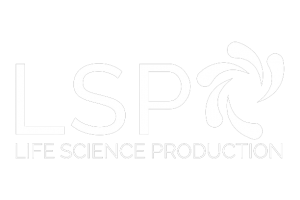A new sampling technology developed by a partnership between Life Science Group Ltd of Bedford, and the University of Bedfordshire, has the potential to transform the global battle against Coronavirus (Sars-CoV-2) and other viruses by improving the speed and safety of sampling, whilst maintaining the quality of the viral sample. Public Health England have just formally validated the approach, confirming that the new testing buffer the team has developed does inactivate the virus, making the samples non-infectious and safe to handle.
During the current pandemic there has been a massive need for testing programmes for Covid infection. Testing needs to be both effective and safe, and there is increased pressure and demand for ‘gold standard’ molecular testing using PCR or similar methods. This has led to a significant increase in processing and rapid changes needed by laboratories across the country, often leading to delays for results and complications with testing.
Life Science Group in Bedford and researchers from the University of Bedfordshire’s School of Life Sciences are working together to produce a range of second-generation ‘Stabilising Viral Inactivation Buffers’ for the transportation of samples for viral testing, with government support through an Innovate UK grant.
Public Health England has now formally validated these new buffers showing that they inactivate the virus – which makes the samples non-infectious and safe to handle. This will help to significantly increase laboratory throughput and improve testing.
The inactivation buffer is expected to work not just for Covid-19 samples, but also for other viruses such as Ebola and will have many different sample applications globally.
The new Inactivir® range of ‘Stabilising Viral Inactivation Buffers’ from Life Science Group is now in the final stages of development. These buffers will be used in sample tubes following the collection of saliva or swab material from the patient and will inactivate any viral pathogens during transportation to the laboratories.
Jenny Murray, Managing Director, Life Science Group Ltd, said:
“The positive results coming through from Public Health England have confirmed the importance of this approach in the global battle against Coronavirus and other viruses.
“The benefits to the whole testing process are many and varied and include a safer and more effective way of handling a wide range of samples in the future. Other benefits include, low toxicity, longer shelf life and the prevention of degradation of samples to reduce issues of false negatives. The buffers can be used with a variety of extraction protocols and, above all, will increase the safety, speed and ease of testing.
“Life Science Group have really benefited from our partnership with the University on this and future projects. We are also actively looking at ways to support the University in providing students with access to the manufacturing skills embedded within the business.”
Dr Robin Maytum, Principal Lecturer in Biomedical Sciences at the University of Bedfordshire and Covid-19 research team lead added:
“We have been working with Life Science Group for just over a year now and this partnership has proved to be an invaluable opportunity for both our research students and staff at the University of Bedfordshire. It has been great to see this work evolve from a scientific concept to something that we believe will make a difference to testing and in the overall fight against Covid-19.
“The demand for localised safe and rapid molecular testing is clear and this product will help protect not just the public, but also those who handle and transport viral samples including the laboratory staff involved in the testing. This technology also preserves the quality of the sample helping to ensure the accuracy of tests.
“This approach is not only important for the high-tech testing environments found in this country, but maybe even more so in less developed parts of the world which don’t have our established systems and processes.
“These buffers will facilitate the next generations of molecular tests as they are put into use, not just within the UK, but globally.”
Life Science Group Ltd is currently the only company offering a full range of inactivation and stabilisation buffers suitable for a range of tests and differing requirements including PCR, Straight-to-PCR and LAMP and is fully ISO 13485 accredited.
